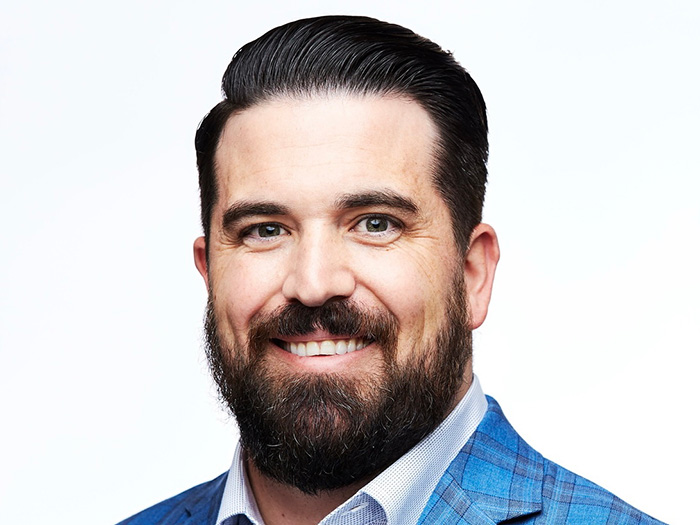Just in Time for Summer: Insuring Pool Contractors’ Complicated Risks

A healthy economy combined with the approaching summer season means that construction activities are picking up — including the construction of new residential and commercial pools. The business of building and servicing pools can be a complex one — the process may involve multiple specialists and suppliers, each with their own unique set of exposures to manage.
Brian Himmer, Assistant Vice President in the Sports and Recreation division at Philadelphia Insurance, talked to us about the varied exposures pool contractors face, the need for broad coverage, and which risk management resources may be most effective.
R&I: What types of companies fall under the umbrella of “pool contractors”?
Brian Himmer: Our business is mainly in the residential pool construction market, as well as the pool service market which can be commercial or residential. Between these two markets, there are many different types of companies that play a role in pool contracting.
In the construction process, there are the designers, fiberglass specialists, landscaping specialists, gunite specialists. There are companies that only do pool concrete work, and others that only do pool cleaning.
In the service department, we have the retail shops where the residential customer would go and buy pool chemicals or cleaning supplies to maintain their own pools.
R&I: What’s the state of the market for pool contracting services right now?
BH: Pool construction trends closely follow construction in general, which closely follows the overall health of the economy. The U.S. economy is doing well, which means people and businesses have a little more disposable income to spend on projects.

Brian Himmer, Assistant Vice President, Sports and Recreation, Philadelphia Insurance
So, the demand for pool contractor products is there, and the insurance market for these products is very competitive. There are many carriers in the market with policies specifically tailored to one or two lines of coverage for pool construction companies, but the market continues to grow.
R&I: What are the most critical risks facing pool contractors?
BH: It varies depending on what type of product or service they’re providing, but one of the biggest risks common to every company is commercial auto exposure.
In this business, there are a lot of trucks on the road driving from job site to job site, many with trailers hauling large equipment. The construction companies might be driving around extra-large trucks with concrete mixers on the back. That’s a pretty high-hazard challenge when they’re driving on the road next to smaller cars. Additionally, if that truck is in an accident and must go out of service, it’s not very easy to buy or rent another one. These are high-cost pieces of equipment and can be difficult to replace.
And then the pool service companies — their automobiles may present an even greater exposure because they spend more time on the road. They might have somebody driving to 10, 12, 15 locations per day, servicing a pool for a half-an-hour and then taking off to the next site.
Liability around construction defects is another top risk. If the pool isn’t installed correctly or the wrong raw materials are used, it can collapse.
Liability around construction defects is another top risk. If the pool isn’t installed correctly or the wrong raw materials are used, it can collapse. We also see pool “pop ups.” This happens when the pool is built or serviced without considering the water table below it. If there’s a heavy rainstorm, the rising water table literally pushes the pool out of the ground.
Liability for bodily harm is also a risk for pool service companies. If they miscalculate the chemical treatment for the pool and put too much in, it could cause a rash or respiratory problem. Those chemicals also pose a pollution liability risk for retail stores who stock and sell them. There is potential for chlorine and bromine to seep into ground water if not stored properly, or for fumes to get into the air.
R&I: Are there any claims trends you’re noticing? Where are the biggest losses coming from?
BH: Generally speaking, construction defect is a big loss driver because these claims have a long tail and they’re tough to mitigate.
A pool contractor’s liability for defective work varies depending on what jurisdiction they’re in. Some states are more restrictive in favor of contractors, meaning the time period in which a claim can be brought against them is smaller, or the definition of a “defect” may be narrower. Others are not so favorable.
A pool contractor’s liability for defective work varies depending on what jurisdiction they’re in. Some states are more restrictive in favor of contractors, meaning the time period in which a claim can be brought against them is smaller, or the definition of a “defect” may be narrower. Others are not so favorable.
We see construction defect claims after accidents happen on diving boards or slides; these are a good example of why the jurisdiction matters. Attorneys will sometimes try to pin the liability back on the construction company, alleging that the apparatus was not built or installed correctly. Injuries from these accidents can be significant; if someone dives off a board into a pool that’s not deep enough, it can result in a severe neck injury, even paralysis. Some states will agree with the attorney and blame the contractor, and others will say no, the fault lies with the owner of the pool for not enforcing safety.
If a contractor is found to be liable, they may be responsible for some very significant costs. So understanding the jurisdictional nuances is critical to manage defect exposure, but it’s a complicated task.
R&I: Given the variety of companies in the pool contracting space and the differences in their key exposures, how is coverage usually structured? Do pool contractors typically have to patch together coverage from different specialty carriers?
BH: There are some specialty carriers who focus on specific pieces of the pie — whether it’s the auto exposure, workers’ comp or professional liability — that have to be packaged together to create a comprehensive program. I don’t think there are any carriers that do every single line of business, us included. For us, workers’ compensation is a line of coverage we don’t write.
However, I view it as a positive to have a single carrier handling most of your insurance needs, which is why we’re providing a full, comprehensive policy with multiple lines of business, including general liability, auto, property and crime and fidelity.
R&I: What are some of the risk management services available to pool contractors, and what’s the uptake like?
BH: One our most valued risk management support services today is our GPS monitoring program. The GPS devices can be installed in scheduled vehicles in seconds, without the need for professional installation. Once installed, members of management begin to receive information on the behaviors of their drivers as they operate the vehicle. They can see if drivers are sticking to their route, are on time, or if they’re exhibiting any unsafe behaviors like hard braking or speeding.
The system also has the ability to track maintenance schedules if the business owner is interested in further risk management from the devices. For example, the business owner can see if a truck has not been in the shop for over a year, indicating it probably needs to get checked out. It’s an easy affordable way to make sure everything is in working order. &










